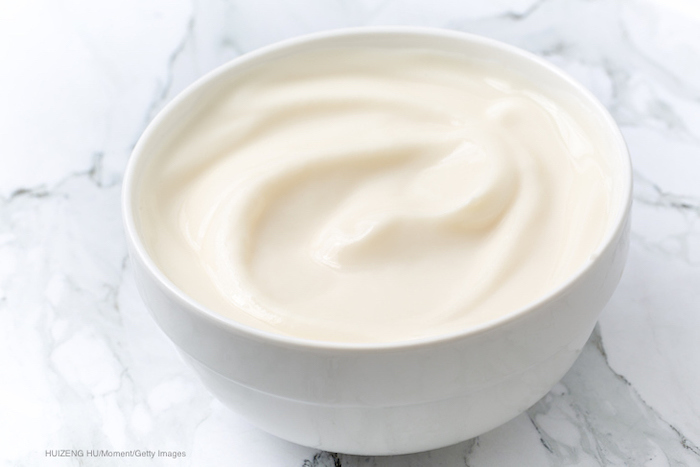An E. coli outbreak linked to organic yogurt sold under the brand names Pure Eire and PCC now includes 16 cases, according to the latest information from the Washington State Department of Health. The organic yogurt E. coli outbreak includes 14 cases in Washington and two cases in Arizona. The Arizona cases are considered secondary infections, meaning the Arizona patients did not eat the yogurt but were in close contact with a visitor from Wahington who did.
Contact the Pritzker Hageman E. coli Lawyers Today
Phone: 888-377-8900 | Text: 612-261-0856
Contact our E. coli Food Safety Lawyers Online
Most of the patients sickened in this outbreak are children. A total of nine people have been hospitalized. Four have developed hemolytic uremic syndrome (HUS), a form of kidney failure associated with E. coli infections. Pritzker Hageman E. coli lawyers are representing three of the people sickened in this outbreak.
Pure Eire Dairy of Othello, WA made both brands of yogurt associated with this outbreak. The PCC brand yogurt was sold at PCC Community Markets in the Seattle area. The Pure Eire yogurt was sold at several stores including Super 1 Foods, Andy’s Market, and Blue Valley Meats. Both Pure Eire and PCC issued recalls on May 15.
When they were notified of the outbreak, the owners of Pure Eire Dairy stopped production of all products voluntarily. While yogurt production is still paused, Pure Eire has recently restarted production of pasteurized milk.

Organic Yogurt E. coli O157:H7 Outbreak Investigation
Health officials used genetic tests to identify the specific “fingerprint” of the E. coli cultured from each person sickened in this outbreak. Matching fingerprints indicate that patients were sickened by the same source. The fingerprints of all 16 cases in this outbreak match.
During interviews with health officials, the 16 confirmed case patients were asked about the foods they ate the week before they became ill. One of these foods was organic yogurt.
Investigators have been collecting and testing yogurt and milk samples they have collected from patients and during on-site investigations of the dairy. The results of these tests are pending.
Health officials have also visited retail stores to make sure all of the recalled product was removed from dairy case shelves.
Previous Pure Eire E. coli Recall
Consumers buy organic foods because they believe they are healthier than conventionally produced foods, according to a Pew Research study. Organic foods do have higher levels of nutrients and lower levels of chemicals. But if good food safety practices aren’t used to produce them, they produce can become contaminated with dangerous bacteria, just as conventionally produced food would be.
A variety of organic foods have been linked to outbreaks and recalls. In fact, Pure Eire had a previous E. coli recall.
In 2013, Pure Eire issued two recalls, one for raw milk, the other for pasteurized milk. The raw milk recall was for potential E. coli contamination. The dairy halted production for about 10 days while authorities investigated.
The pasteurized milk and cream recall occurred after the Washington Department of Agriculture noted a pasteurization problem. The issue was detected and corrected during an inspection, the company said at that time.
Pure Eire uses a process called vat pasteurization, also known as “batch” or “low-temperature long-time pasteurization” to pasteurize its milk. This method involves heating the dairy product to a certain temperature for 30 minutes and then quickly cooling it. Air temperature in the air space above the vat must consistently remain 5˚ F above the holding temperature of the liquid in the vat during the process. The pasteurization problem in 2013 was with above-vat air space temperature.
Symptoms of E. coli, HUS
Many E. coli strains are harmless, but a few including the strain linked to this outbreak – E. coli O157:H7, produce a substance that is poison to humans called a Shiga toxin. E. coli O157:H7 bacteria live almost exclusively in the intestines of cattle.
Symptoms of an E. coli infection include abdominal cramps and diarrhea that can be bloody. These symptoms usually develop within three to five days of eating contaminated food. The people sickened in this outbreak said they first fell ill on dates ranging from March 9 to April 21, 2021.
HUS is a complication of E. coli infections that primarily affects children. Treatment includes dialysis, infusions, and kidney transplant.
Between 5 percent and 10 percent of E. coli patients develop HUS which causes kidney failure, seizure, stroke, coma, and death. HUS symptoms usually develop one week after the onset of initial E. coli symptoms. They include pale skin, skin that easily bruises, decreased urination, fatigue, fainting and unexplained weakness. Anyone with HUS symptoms should seek immediate, emergency medical care
E. coli Lawsuit Consultation
Pritzker Hageman E. coli lawyers have represented clients in every major E. coli outbreak, including this one. Our clients have included those who battled HUS and families who have suffered the wrongful death of a loved one.
If you were sickened in this outbreak and would like a free consultation with an experienced E. coli lawyer, please contact the Pritzker Hageman E. coli Legal Team. You can reach us by calling 1-888-377-8900, sending a text to 612-261-0856, or by completing the form below. There is no obligation and you don’t pay us unless we win.